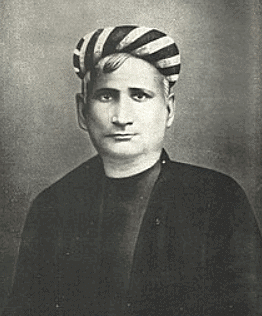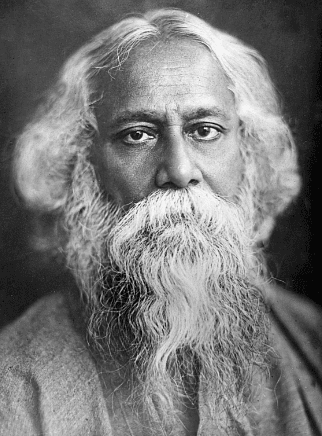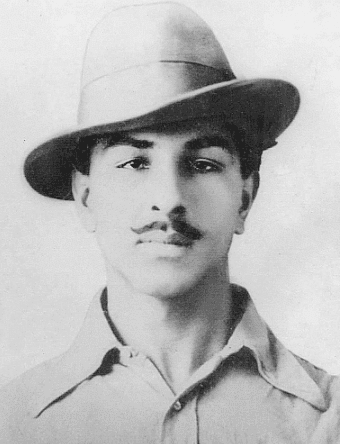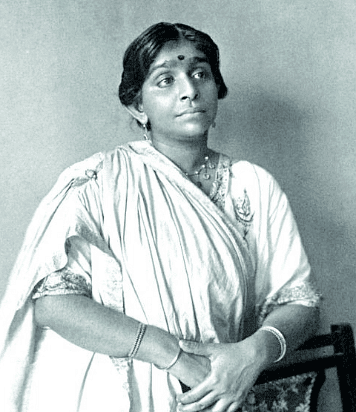Nitin Singhania Summary: Indian Literature- 2 | History for UPSC CSE PDF Download
Nationalist Literature of India
Literature and nationalism have always been linked, especially during India’s struggle for independence. In the 19th century, with the rise of nationalist thoughts, literature in various Indian languages blossomed, focusing on national issues. Here are some key figures and their contributions to nationalist literature:
Bankim Chandra Chatterjee
- A renowned novelist, Chatterjee played a crucial role in educating the masses and raising awareness.
- He founded the journal Bangadarshan , which became a platform for sharing information and ideas.
- This magazine was instrumental in shaping a distinct Bengali identity , fuelling the rise of nationalism in Bengal.
- His novel Anand Math motivated the youth to participate actively in nationalist causes.
Rabindranath Tagore
- Tagore presented a unique perspective on nationalism, linking it to humanity rather than mere geography.
- In his novels Gora and Ghare Baire , he emphasized the need for 'freedom of mind' , reflecting a broader understanding of nationalism.
- His literary works, including the national anthem Jana Gana Mana , embodied a strong nationalistic spirit that resonated deeply with the public.
Bharatendu Harischandra
- Harischandra utilized poetry to evoke a sense of patriotism among the masses.
- His plays, such as Andher Nagari and Bharat Durdasha , criticized the oppressive nature of British rule.
Dadabhai Naoroji
- In his book Poverty and Un-British Rule in India , Naoroji initiated economic criticism within nationalist discourse.
- He introduced the concept of the 'Drain of Wealth' , highlighting the economic exploitation of India by Britain.
R.C. Dutt
- Dutt supported the nationalist cause by exposing British economic exploitation in his book The Economic History of India .
- He also showcased his patriotism through literature, writing four historical novels that reflected his commitment to the nationalist movement.
Bhagat Singh
- While imprisoned in Lahore Central Jail, Singh penned the essay "Why I am an Atheist" to disseminate his nationalist views among the public.
 |
Nitin Singhania Test: Indian Literature - 1
|
Start Test |
Books by Various Leaders
- Works like The Indian Struggle by Subhas Chandra Bose, The Discovery of India by Jawaharlal Nehru, and The Indian War of Independence by V.D. Savarkar played a crucial role in educating and instilling a sense of patriotism among educated Indians.
- During his imprisonment in Yeravda Jail in 1930, Mahatma Gandhi translated Sanskrit hymns and melodies into English in the book Songs from Prison , contributing to the cultural aspect of the nationalist movement.



Indian English Literature (IEL)
Indian English Literature (IEL) refers to the writings by Indians in English, a practice that began during the colonial period when British education influenced Indian writers. This genre represents a distinct blend of Indian cultural elements within the structure of English language and expression.
Early Examples
- One of the pioneering works in this genre is The Travels of Dean Mahomet (1794) by Sake Dean Mahomet. This book combines real travel experiences with non-fictional aspects.
First Indian Novels
- The inception of Indian novels in English can be traced back to Rajmohan’s Wife (1864), authored by Bankim Chandra Chattopadhyay.
- Bianca, or The Young Spanish Maiden (1878) by Toru Dutt stands out as a pioneering work by an Indian woman writer.
Early Poets
- Early Indian English literature saw contributions from notable poets such as Derozio, Michael Madhusudan Dutt, Toru Dutt, Romesh Chunder Dutt, Sri Aurobindo, and Sarojini Naidu .
Growth in the 1930s
- The 1930s witnessed the rise of Indian English fiction, significantly propelled by writers like R. K. Narayan, Mulk Raj Anand, and Raja Rao .
Influential Speeches
- Speeches by prominent figures such as Swami Vivekananda, Rabindranath Tagore, Chittaranjan Das, Bal Gangadhar Tilak, Mahatma Gandhi, and Subhas Chandra Bose played a crucial role in shaping modern India and the perception of English.
 |
Download the notes
Nitin Singhania Summary: Indian Literature- 2
|
Download as PDF |
Notable Contemporary Writers
- Contemporary literary figures like Salman Rushdie, Anita Desai, Arundhati Roy, Vikram Seth, Rohinton Mistry, and Shashi Tharoor have made significant contributions to Indian English literature.
The development of Indian English literature showcases a vibrant interaction between cultural influences, historical circumstances, and the creative outputs of various writers.
Overview of Indian Literature
- Early Novels: The journey of Indian novels in English began with "Rajmohan's Wife" (1864) by Bankim Chandra Chattopadhyay . This was followed by "Bianca, or The Young Spanish Maiden" (1878) by Toru Dutt , an important work by an Indian woman. Sarojini Naidu also played a significant role in this period.
- Early Poets: Poets such as Derozio , Michael Madhusudan Dutt , Toru Dutt , Romesh Chunder Dutt , Sri Aurobindo , and Sarojini Naidu were pivotal in the early stages of Indian English literature.
- Growth in the 1930s: The 1930s saw the rise of authors like R. K. Narayan , Mulk Raj Anand , and Raja Rao , who were instrumental in developing and popularising Indian English fiction.
- Influential Speakers: Figures such as Swami Vivekananda , Rabindranath Tagore , Chittaranjan Das , Bal Gangadhar Tilak , Mahatma Gandhi , and Subhas Chandra Bose delivered speeches that significantly influenced modern India and highlighted the importance of English.
- Contemporary Writers: Modern authors like Salman Rushdie , Anita Desai , Arundhati Roy , Vikram Seth , Rohinton Mistry , and Shashi Tharoor have made notable contributions to Indian English literature.

The Evolution of Indian English Literature
Overview
- The development of Indian English literature reflects a dynamic interplay between cultural influences and historical contexts.
- It showcases the creative expressions of diverse writers hailing from various regions and backgrounds.
|
113 videos|550 docs|173 tests
|
FAQs on Nitin Singhania Summary: Indian Literature- 2 - History for UPSC CSE
| 1. What is nationalist literature in India? |  |
| 2. What are the characteristics of nationalist literature in India? |  |
| 3. Who were some important authors of nationalist literature in India? |  |
| 4. How did nationalist literature contribute to the Indian independence movement? |  |
| 5. Is nationalist literature still relevant in contemporary India? |  |





















